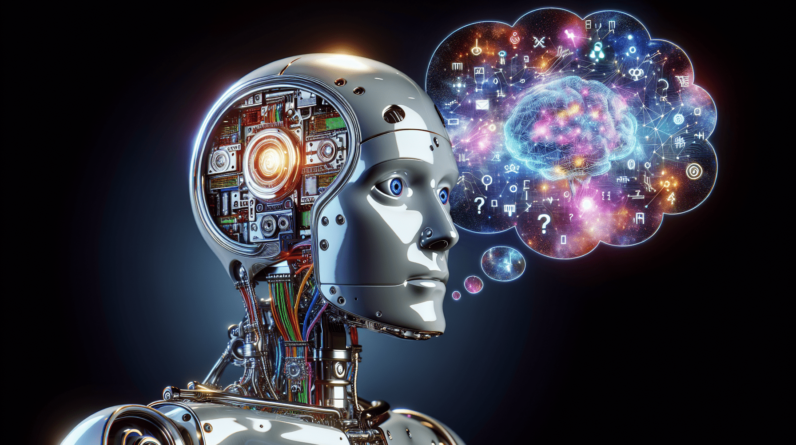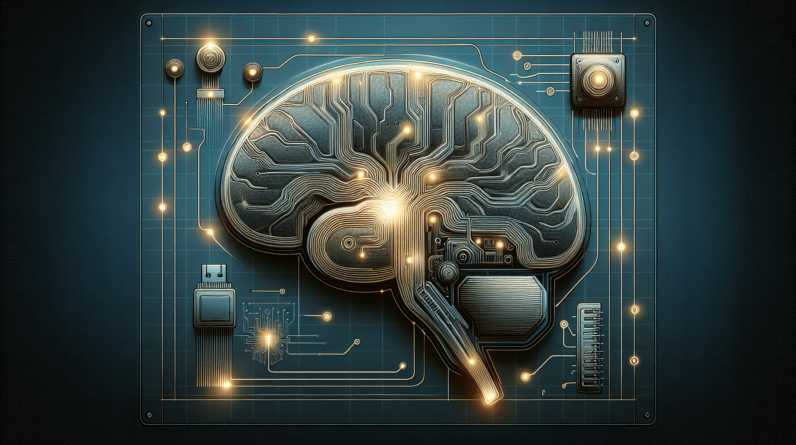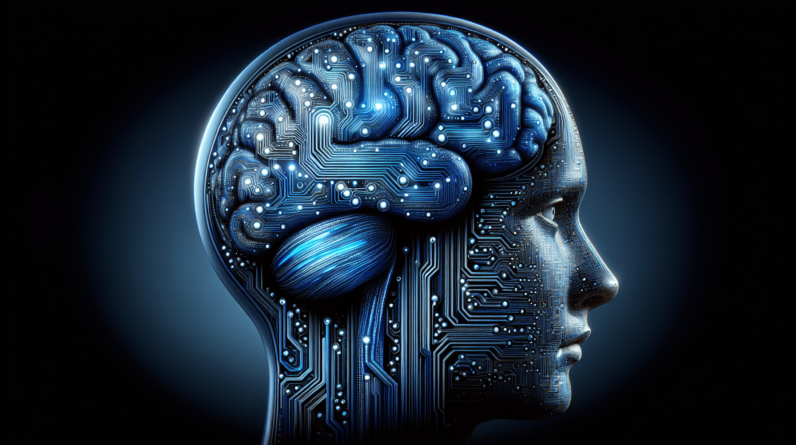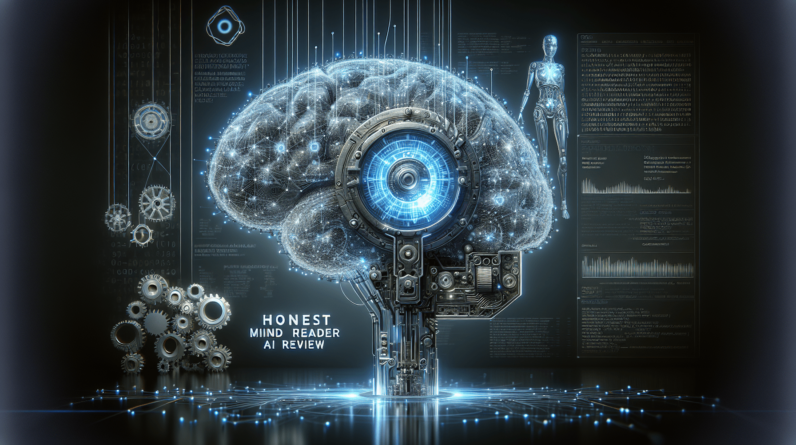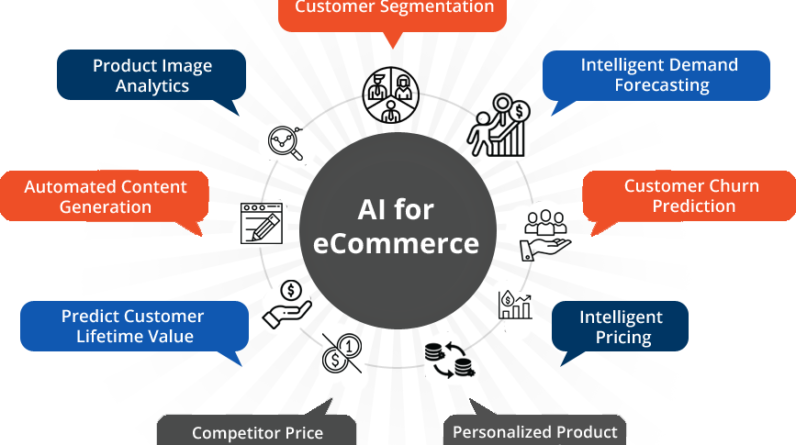
Table of Contents
Introduction
As an AI enthusiast, I am thrilled to share with you five AI-driven strategies for e-commerce optimization. In this article, you will discover how AI can help you make money and passive income, revolutionizing the way you approach your online business.
What is AI-driven E-commerce Optimization?
AI-driven e-commerce optimization refers to the use of artificial intelligence technologies and techniques to improve various aspects of an e-commerce business. By harnessing the power of AI, businesses can automate processes, enhance customer experiences, and generate valuable insights to drive growth.
Importance of AI in E-commerce
AI plays a crucial role in e-commerce by automating repetitive tasks, personalizing product recommendations, and improving customer service through chatbots. With AI, businesses can analyze massive amounts of data, uncover patterns, and make data-driven decisions to boost sales and customer satisfaction.
Benefits of E-commerce Optimization
E-commerce optimization has numerous benefits for businesses. By leveraging AI, you can streamline your operations, reduce costs, and increase efficiency. AI-powered personalization enables you to deliver tailored experiences to customers, enhancing their satisfaction and loyalty. Additionally, AI-driven analytics provides valuable insights about customer behavior and preferences, enabling targeted marketing strategies and enhancing conversion rates.
In the following sections, we will explore five powerful AI-driven strategies for e-commerce optimization that can help you unlock new opportunities and maximize your business’s potential. So, let’s get started on this exciting journey!
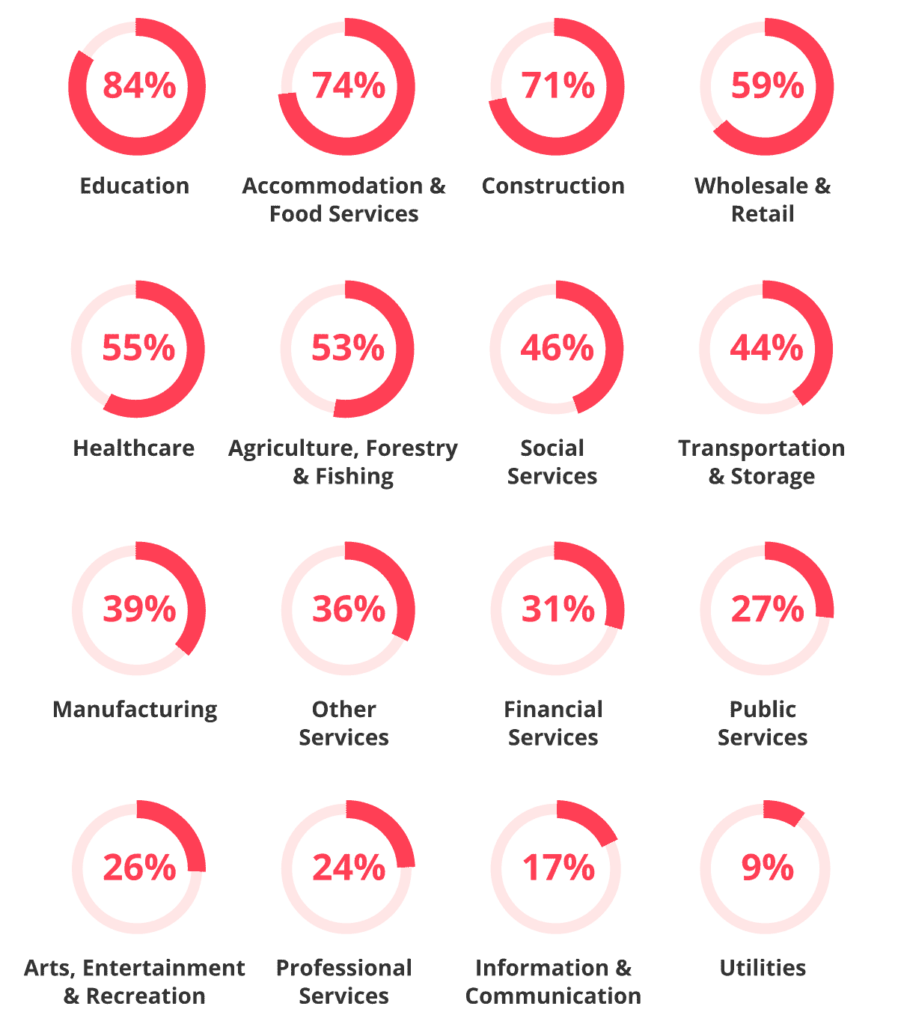
Understanding AI in E-commerce
Role of AI in E-commerce
In today’s digital age, harnessing the power of technology is paramount to stay ahead in the competitive world of e-commerce. Artificial Intelligence (AI) has emerged as a game-changer, enabling businesses to optimize their online platforms for increased sales and profitability. As an AI enthusiast, I have discovered five powerful AI-driven strategies that can revolutionize e-commerce optimization and help you make money and passive income.
Types of AI used in E-commerce Optimization
AI is not a one-size-fits-all solution; it encompasses a wide range of technologies. Machine learning algorithms, natural language processing (NLP), recommendation engines, and chatbots are some of the AI tools employed in e-commerce optimization. These technologies enable businesses to personalize customer experiences, improve search functionality, enhance customer service, and drive sales.
AI-driven Data Analytics in E-commerce
Data analysis is critical for successful e-commerce optimization, and AI takes it to a whole new level. With AI-powered algorithms, you can gain valuable insights into customer behavior, preferences, and purchasing patterns. This invaluable data can be leveraged to deliver highly targeted marketing campaigns, precisely predict customer demands, and optimize pricing strategies. AI empowers you to make data-driven decisions to maximize your revenue potential.
By understanding the role of AI and the various AI-driven technologies in e-commerce optimization, you can effectively leverage these strategies to boost your online business. AI not only enhances operational efficiency but also offers valuable insights for sustainable growth. Embrace the power of AI, and watch your e-commerce revenue soar.
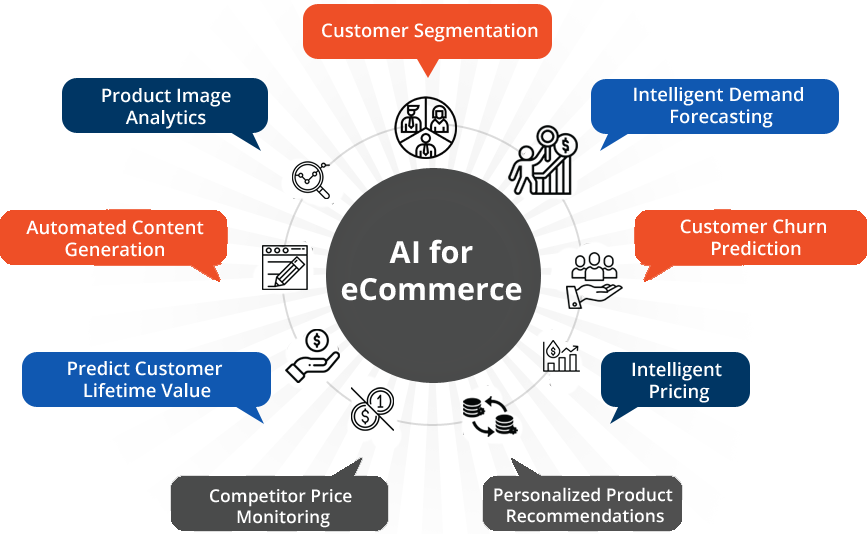
AI-Driven Strategies for E-commerce Optimization
In the rapidly evolving world of e-commerce, leveraging AI-driven strategies can be the key to staying ahead of the competition and maximizing profitability. Through the power of artificial intelligence, we can automate and streamline various aspects of our online business, ultimately driving better results and increasing revenue. Let’s explore five essential AI-driven strategies for e-commerce optimization.
Personalized Product Recommendations
AI allows me to provide personalized product recommendations to my customers based on their browsing and purchasing history. By analyzing their data, AI algorithms can accurately predict their preferences and suggest relevant products, thus increasing the chances of conversion and enhancing customer satisfaction.
Dynamic Pricing Algorithms
With AI-powered dynamic pricing algorithms, I am able to optimize my pricing strategy in real-time, taking into account factors such as demand, competition, and market trends. This helps me maximize sales and revenue by offering the right price at the right time, while also staying competitive in the market.
Chatbots and AI-Powered Customer Support
Implementing chatbots and AI-powered customer support enables me to provide round-the-clock assistance to my customers. These intelligent systems can handle basic queries, provide instant responses, and even offer personalized recommendations, ensuring a seamless and efficient customer experience.
Predictive Inventory Management
Through AI-driven predictive inventory management, I am able to forecast demand accurately and optimize my inventory levels. By analyzing historical data, market trends, and other factors, AI algorithms help me prevent stockouts, reduce excess inventory, and ultimately minimize costs while ensuring a smooth supply chain.
Automated Marketing Campaigns
AI enables me to automate my marketing campaigns, from segmentation and targeting to content creation and optimization. By leveraging machine learning, I can deliver hyper-personalized and targeted advertisements to my customers, increasing their engagement and conversion rates.
With these AI-driven strategies, I can optimize various aspects of my e-commerce business, from customer experience and pricing to inventory management and marketing campaigns. By leveraging the power of AI, I can stay ahead of the competition, maximize profitability, and create a seamless and personalized shopping experience for my customers.
Implementing AI-Driven Strategies
In order to maximize our e-commerce success and optimize our online business, it is essential to leverage the power of Artificial Intelligence (AI). By incorporating AI-driven strategies, we can effectively enhance our sales, improve customer experience, and boost overall productivity. With AI technologies continuously evolving, there are five key approaches that can significantly contribute to our e-commerce optimization efforts.
Data Collection and Analysis
The first step in implementing AI-driven strategies involves collecting and analyzing vast amounts of data. By leveraging AI algorithms, we can gain valuable insights into consumer behavior, preferences, and purchasing patterns. This detailed understanding allows us to personalize the customer experience, target specific market segments, and optimize our product offerings.
Machine Learning Algorithm Implementation
Once we have collected data, we can utilize machine learning algorithms to process and interpret this information. These algorithms can identify patterns, predict future trends, and optimize our marketing strategies. By leveraging AI-driven machine learning, we can enhance product recommendations, increase customer engagement, and drive sales.
Integration with E-commerce Platforms
To fully harness the power of AI, it is crucial to integrate with e-commerce platforms. AI technologies can be seamlessly integrated into existing platforms, allowing for real-time data analysis, personalized recommendations, and efficient inventory management. This integration helps streamline operations, improve customer satisfaction, and drive business growth.
Collaboration with AI Solution Providers
Collaborating with AI solution providers can further enhance our e-commerce optimization efforts. These professionals are experts in developing and implementing AI-driven solutions tailored to our business needs. By partnering with them, we can access cutting-edge AI technologies, benefit from their expertise, and ensure the successful implementation of AI-driven strategies.
by implementing AI-driven strategies, we can revolutionize our e-commerce optimization efforts. By leveraging data analysis, machine learning algorithms, platform integration, and collaboration with AI solution providers, we can maximize business success, increase profitability, and deliver exceptional customer experiences. Now is the time to embrace the power of AI and unlock the full potential of our e-commerce business.
Challenges and Limitations
As with any advanced technology, there are various challenges and limitations that must be considered when implementing AI-driven strategies for e-commerce optimization. In this section, I will discuss some of the key areas that require careful attention.
Data Privacy and Security
One significant concern with AI-driven e-commerce optimization is the protection of customer data. As AI algorithms rely heavily on data collection and analysis, it is crucial to ensure that this process is carried out in a secure and ethical manner. Striking a balance between personalizing the customer experience and respecting privacy rights is essential.
Costs and Investments
Implementing AI-driven strategies for e-commerce optimization can involve significant costs and investments. AI technologies are continuously evolving, requiring businesses to stay updated and adapt to new advancements. The initial investment in AI infrastructure, training, and maintenance may be substantial, particularly for small businesses with limited resources.
Ethical Considerations
AI raises ethical questions that demand thoughtful consideration. Issues such as algorithmic bias, discrimination, and unintended consequences need to be addressed when leveraging AI for e-commerce optimization. It is crucial to ensure that AI systems are designed and used ethically, with fairness and transparency in mind.
Skills and Expertise
Leveraging AI effectively requires specific skills and expertise. Developing and implementing AI-driven strategies necessitates a team with expertise in data analytics, machine learning, and AI modeling. Finding and retaining skilled professionals can be a challenge, particularly considering the high demand for AI talent.
Integration Challenges
Integrating AI into existing e-commerce systems can pose technical challenges. Ensuring seamless integration between AI-driven optimization algorithms and existing infrastructure and platforms requires careful planning and execution. Compatibility issues and technical complexities may arise, leading to potential disruptions in the e-commerce ecosystem.
while AI-driven strategies offer immense potential for e-commerce optimization, it is important to navigate and overcome the challenges and limitations associated with this technology. By addressing data privacy, costs, ethics, skills, and integration challenges thoughtfully, businesses can harness the power of AI to drive revenue growth and enhance the customer experience.

Case Studies
Successful Implementation Examples
In recent years, Artificial Intelligence (AI) has revolutionized the e-commerce landscape, enabling businesses to optimize their operations and generate significant profits. Today, I will share with you five AI-driven strategies that can help you optimize your e-commerce business and achieve success in the ever-evolving digital market.
One successful implementation of AI-driven e-commerce optimization can be seen in the personalized product recommendations generated by AI algorithms. By analyzing customer data and behavior patterns, AI can suggest products tailored to each individual’s preferences, increasing the chances of conversion and boosting revenue.
Another case study showcases the use of AI-powered chatbots. These intelligent virtual assistants not only provide instant customer support but also collect valuable data on customer inquiries and preferences. By leveraging this information, businesses can improve their customer service, tailor their marketing strategies, and ultimately drive higher sales.
Impact of AI-Driven Optimization on E-commerce Businesses
The impact of AI-driven optimization on e-commerce businesses cannot be overstated. By harnessing the power of AI, businesses can automate various tasks, such as inventory management, pricing optimization, and supply chain management. This not only reduces costs but also improves efficiency, allowing businesses to focus on delivering exceptional customer experiences.
Lessons Learned and Best Practices
Through these case studies and the countless success stories emerging from the e-commerce market, a few key lessons have been learned. First, it is crucial to invest in high-quality AI technology that can effectively analyze and interpret data. Second, businesses must actively gather and analyze customer data to gain insights into their preferences and behavior. Finally, regular monitoring and refinement of AI algorithms are necessary to ensure optimal performance and drive continuous improvement.
AI-driven strategies have proven to be game-changers for e-commerce businesses. By implementing personalized product recommendations, leveraging chatbots, and automating various processes, businesses can optimize their operations, improve customer experiences, and ultimately boost their bottom line. So, why wait? Embrace the power of AI and unlock the potential for exponential growth in your e-commerce business.
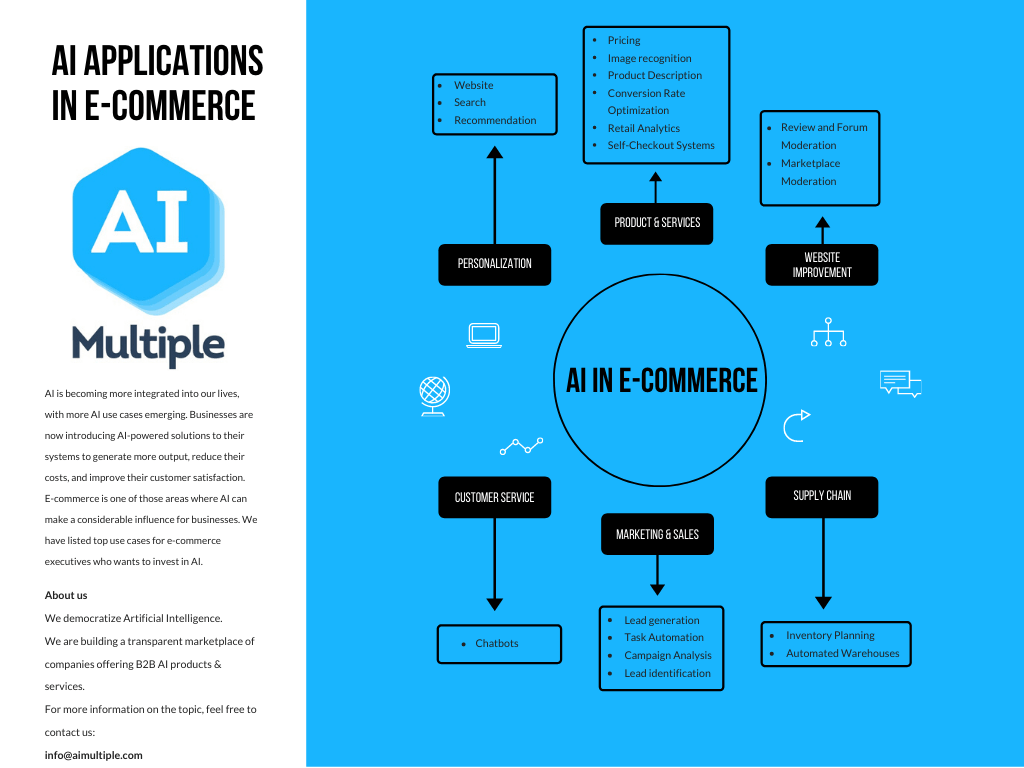
Future Trends in AI-Driven E-commerce Optimization
With the rapid advancements in technology, Artificial Intelligence (AI) is revolutionizing the way e-commerce operates. By harnessing the power of AI, businesses can optimize their strategies and drive higher revenue. In this article, I will discuss five AI-driven strategies that are shaping the future of e-commerce optimization.
Advancements in Deep Learning and Neural Networks
Deep learning and neural networks are at the forefront of AI innovation. These technologies enable e-commerce platforms to analyze large volumes of data and gain valuable insights into customer behavior. By understanding their preferences and buying patterns, businesses can personalize the shopping experience, recommend relevant products, and increase conversion rates.
Voice and Image recognition for Enhanced User Experience
Voice and image recognition technologies are transforming the way users interact with e-commerce platforms. With AI-powered voice assistants and visual search capabilities, customers can simply speak or upload a picture to find their desired products. This streamlined and intuitive experience leads to higher customer satisfaction and increased sales.
Artificial Intelligence and Augmented Reality
Augmented Reality (AR) is becoming increasingly popular in the e-commerce industry. By integrating AI with AR, businesses can offer virtual try-on features, enabling customers to visualize products and make informed purchase decisions. This immersive experience enhances customer engagement and reduces returns, ultimately boosting profitability.
Integration of AI with Internet of Things (IoT)
The integration of AI with the Internet of Things (IoT) is enabling e-commerce platforms to deliver a seamless and connected shopping experience. With AI-driven IoT devices, businesses can collect real-time data and analyze it to optimize inventory management, personalize marketing campaigns, and enhance customer service.
Hyper-Personalization in E-commerce
Hyper-personalization is the future of e-commerce optimization. By leveraging AI, businesses can create personalized product recommendations, customized marketing messages, and tailored shopping experiences. This level of personalization builds customer loyalty and increases conversion rates.
AI-driven strategies are revolutionizing e-commerce optimization. From advancements in deep learning and neural networks to voice and image recognition technologies, AI is reshaping the industry. By embracing these trends, businesses can stay ahead of the competition, drive revenue growth, and create a truly personalized shopping experience for their customers.
Conclusion
In conclusion, implementing AI-driven strategies in e-commerce optimization can provide numerous benefits for online businesses. The use of AI technology can enhance customer experience, increase revenue, and improve overall efficiency.
Summarizing the Benefits of AI-Driven E-commerce Optimization
One of the key benefits of AI in e-commerce optimization is its ability to personalize the customer journey. AI algorithms can analyze vast amounts of data regarding customer preferences and behaviors, allowing businesses to deliver personalized recommendations and offers. This level of personalization not only improves customer satisfaction but also increases the likelihood of conversions and repeat purchases.
Another advantage of AI-driven e-commerce optimization is its potential to automate various time-consuming tasks. AI-powered chatbots, for example, can provide instant customer support, answer inquiries, and assist with order tracking. This automation allows businesses to streamline their operations, saving time and reducing human error.
The Future of AI in E-commerce
The future of AI in e-commerce is promising. As technology continues to improve, AI algorithms will become even more sophisticated, enabling businesses to gain deeper insights into customer behavior and preferences. This will lead to further optimization of marketing campaigns, product recommendations, and inventory management.
Key Takeaways
In summary, implementing AI-driven strategies in e-commerce optimization can revolutionize the way businesses operate. By leveraging AI technology, online retailers can enhance personalization, automate tasks, and improve overall efficiency. Considering the bright future of AI in e-commerce, it is crucial for businesses to stay ahead of the curve and embrace this powerful tool to drive success and remain competitive in the ever-evolving digital landscape.



